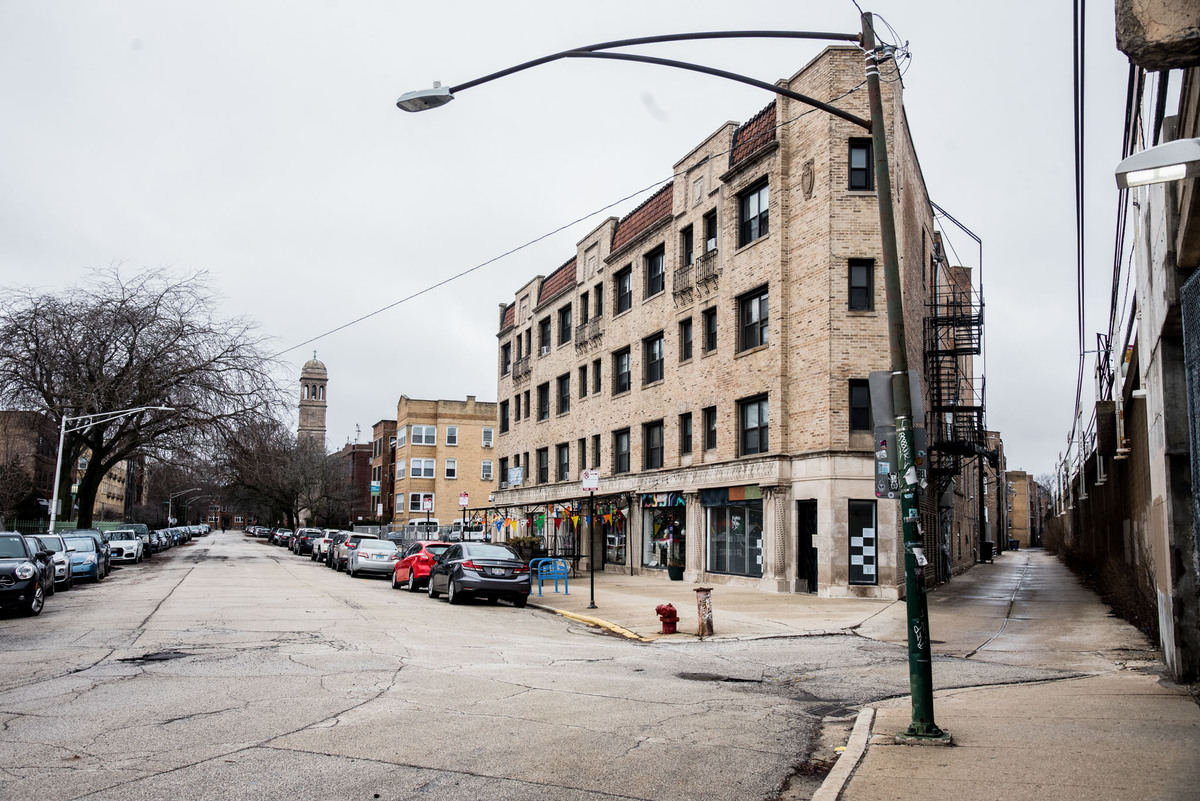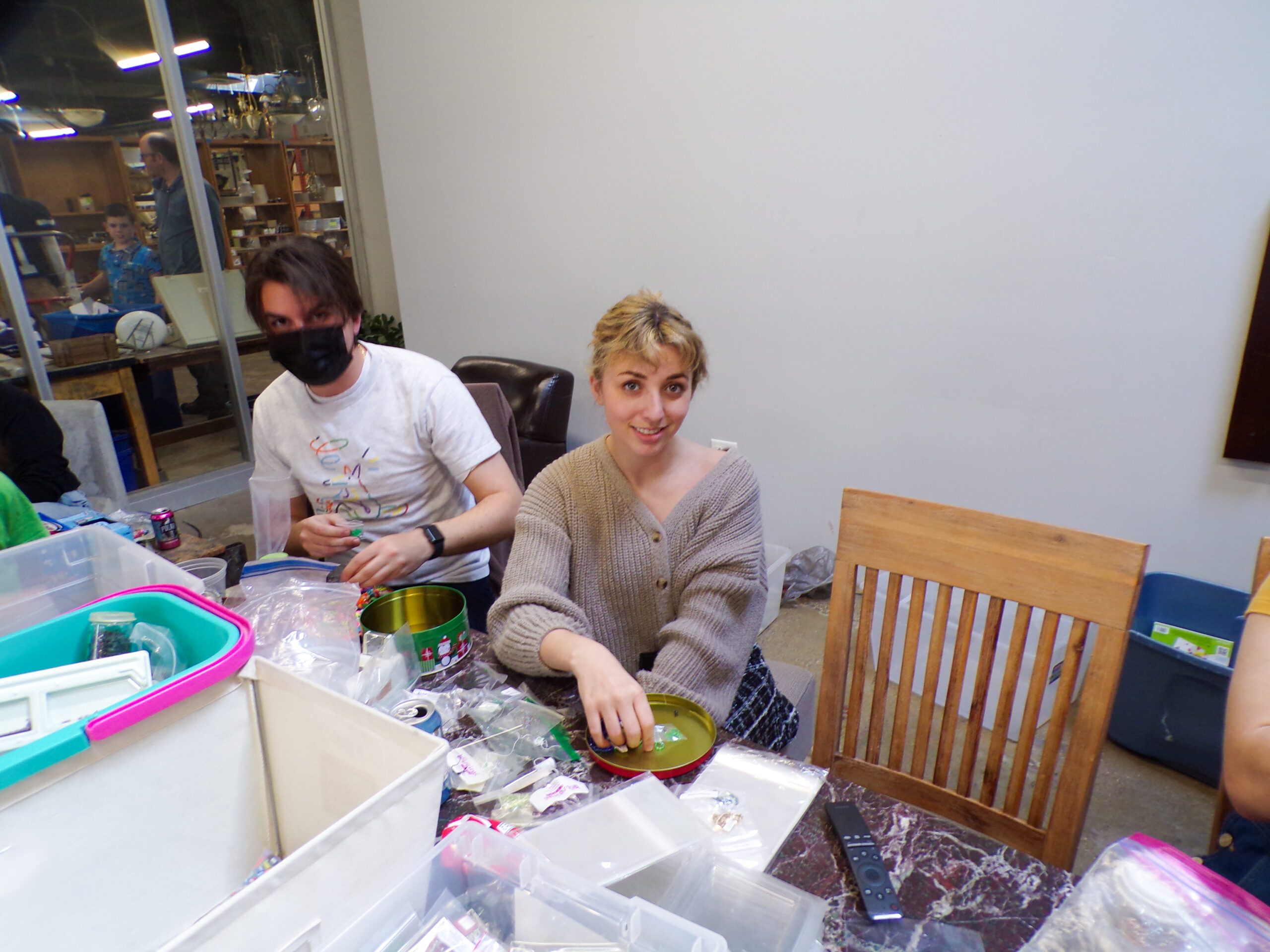Loyola purchased the property at 1226-1234 W. Loyola Ave. Dec 19, adding the building to their list of properties owned in the surrounding area.
Loyola purchased the property at 1226-1234 W. Loyola Ave. Dec 19, adding the building to their list of properties owned in the surrounding area.
Michael Loftsgaarden, Loyola’s vice president of capital planning, said there are currently no construction plans, but the building will be torn down once the leases run out in September 2025.
“The reality of the situation was we felt like, ‘Hey, we got this for a good price that makes sense to us,’” Loftsgaarden said. “Its assemblage value is the primary driver here for a future development, whatever, it just makes total sense for that. But again, there’s nothing on the board right now.”
Lofstgaarden said he was approached by a broker representing Mark Gerb — the building’s previous owner — April 29. After months of negotiations and reviewing the legal terms of purchase, the university officially bought the property.
Loftsgaarden said the price Loyola purchased the building for — $3 million — was far below the previous owner’s asking price due to the poor state of the building, which he said isn’t functionally or fiscally sustainable.
“Our plan is to let all our leases run out in the building,” Loftsgaarden said. “As leases come available, we’re not renewing, and the plan will be to vacate the building and after that try to get it demolished.”
Nathan Abhalter-Smith and his partner Kristin, who own the non-profit art gallery Roman Susan, located at 1224 W. Loyola Ave., have notified others throughout the community of the purchase. Since their lease ends September 2025 — a year after all other leases in the building end — they said their extended time prompted them to advocate for other tenants.
The Abhalter-Smiths said they became aware the building was for sale in June after overhearing people outside speculating about selling the building. They then received a certificate verifying the current terms of their lease Sept. 22, followed by an official notice Loyola had bought the property on Dec. 22.
After receiving the lease confirmation, the Abhalter-Smiths said they received a buyout offer from Realty & Mortgage Co. — the third-party company hired to communicate with tenants — Sept. 25. The Abhalter-Smiths said Realty & Mortgage Co. asked them to shorten their lease by 12 months, which they declined on the same day.
Realty & Mortgage Co. denied a request for comment.
Attorneys from Bielski Chapman, Ltd., contacted the Abhalter-Smiths Oct. 6, asking them for a buyout counteroffer or an estimate of their moving expenses. The attorneys represented Gerb and were hired to negotiate with the Abhalter-Smiths at Loyola’s request, according to Loftsgaarden.
The Abhalter-Smiths said they were contacted by the attorneys five times from Oct. 6-30, encouraging them to engage in negotiations and submit counter-offers.
Despite these attempts, the Abhalter-Smiths said they had no interest in negotiating their lease, saying they felt accepting a buyout would set a move-out date for the whole building.
“We realized that we had agency that other people in the building didn’t have,” Nathan Abhalter-Smith said. “And we felt some amount — not some amount, a real amount of responsibility to our neighbors.”
The residential tenants were unaware the building was up for sale, according to the Abhalter-Smiths, who spoke with tenants they saw in the building after being contacted by attorneys.
Grady Hamilton, who has lived in the building for nearly 24 years, received notification of non-renewal for his lease Jan. 26. This was the first official notice of non-renewal the Abhalter-Smiths are aware of, as Hamilton’s lease ends May 21.
Hamilton, a native of Chicago’s South Side who moved to Rogers Park in 1991, said he and other tenants are surprised Loyola would remove long-term residents, many of whom — including Hamilton — receive social security.
“This is home, you know?” Hamilton said. “Most people don’t want to go, but we have no other choice.”
Along with Hamilton and the Abhalter-Smiths, Maggie Roche, the owner of Edge Art is also being affected by the building closure.
Roche is a class of 1966 Loyola alumni who has lived in Edgewater since the 1970s and rented 1230 W. Loyola Ave. since 2011, selling art purchased from Mexican artists. Roche said she is frustrated by Loyola’s lack of consideration for locals.
“I feel like Loyola University looks at this little strip, this little wild child strip of creative thinking people sustaining a living in this simple building, as just riff-raff,” Roche said.
Roche’s frustration reflects neighborhood dissatisfaction with Loyola’s anchor mission, a commitment adopted by the university to contribute to the local community through economic development, local capacity building, neighborhood revitalization and community partnerships.
Despite this mission, Roche said Loyola’s treatment of the building and its tenants proves it views them as unimportant.
“That’s not very Jesuit,” Roche said. “It’s not just about what you do for yourself. Yes, we want to do well for ourselves, we want to do well for our families. But there’s a lot of other people, when you zoom way out here, that you also have to be good for.”
Loftsgaarden said the purchase of 1226-1234 W. Loyola Ave. is probably not contributing to the university’s anchor mission.
Gerb declined to comment on why he put the building up for purchase saying only that he was sure the university would do a good job.
Jennifer Crown, assistant vice president of neighborhood initiatives, said she firmly believes the neighborhood and the university are inseparable.
“The needs and wants of the Rogers Park and Edgewater community are not dissimilar from the needs and wants of the university,” Clark said. “We love the neighborhood that our university is in, it’s the reason our students choose to come to Loyola, so we’re not trying to change the neighborhood in any way.”
Roberta Schmatz, who said she has operated Archie’s Cafe for the last six years, also said partnership between Loyola and the community is important. She works with the Urban Agriculture Department, WLUW and Students for Reproductive Justice in addition to employing and hosting Loyola students as performers, bartenders and patrons.
Schmatz said she found out the building was going to be put up for sale last summer while trying to negotiate her lease with the previous landlord. She reached out to Loftsgaarden after receiving the sale notice, asking if her lease could be extended to September 2025, matching the Abhaleter-Smiths.
Lofstgaarden seemed open to this but gave no confirmation, according to Schmatz.
Although Schmatz said she understands the university is growing, she hopes Loyola will try to include spaces and room for community, imploring them to consider the neighbors outside of the university.
Schmatz is working on a petition to show Loyola that people would like to see more community spaces. It will be available to all community members online via her Instagram and in-person at Archie’s Cafe.
The Abhalter-Smiths have also been working to engage the university with the community, from sending letters to community members to speaking on WBEZ. They said many residential tenants are vulnerable to becoming unhoused and Loyola’s extensive resources could help them find affordable housing.
“They’re talking about honoring leases, which they legally have to do, but they could honor the people that live here too, and actually help them find housing in the area that they can afford,” Nathan Abhalter-Smith said.
This possibility to help the tenants is why the Abhalter-Smith’s said they feel their extended amount of time in the building is more valuable than capital or cash, saying the building and its businesses are idiosyncratic and intergenerational.
Roche echoed the long-held community significance of 1226-1234 W. Loyola Ave.
“This is authentic,” she said. “This is Rogers Park.”
Featured image by Daphne Kraushaar
-

Hailey Gates is a third-year student majoring in English and minoring in journalism and art history. In addition to working as Opinion Editor of The Phoenix, she is a Writing Fellow at the Writing Center and a Provost Fellow undergraduate researcher. She loves to write feature stories about local art and artists and Opinion pieces on everything from national politics to Reese’s Peanut Butter Pumpkins.
View all posts











